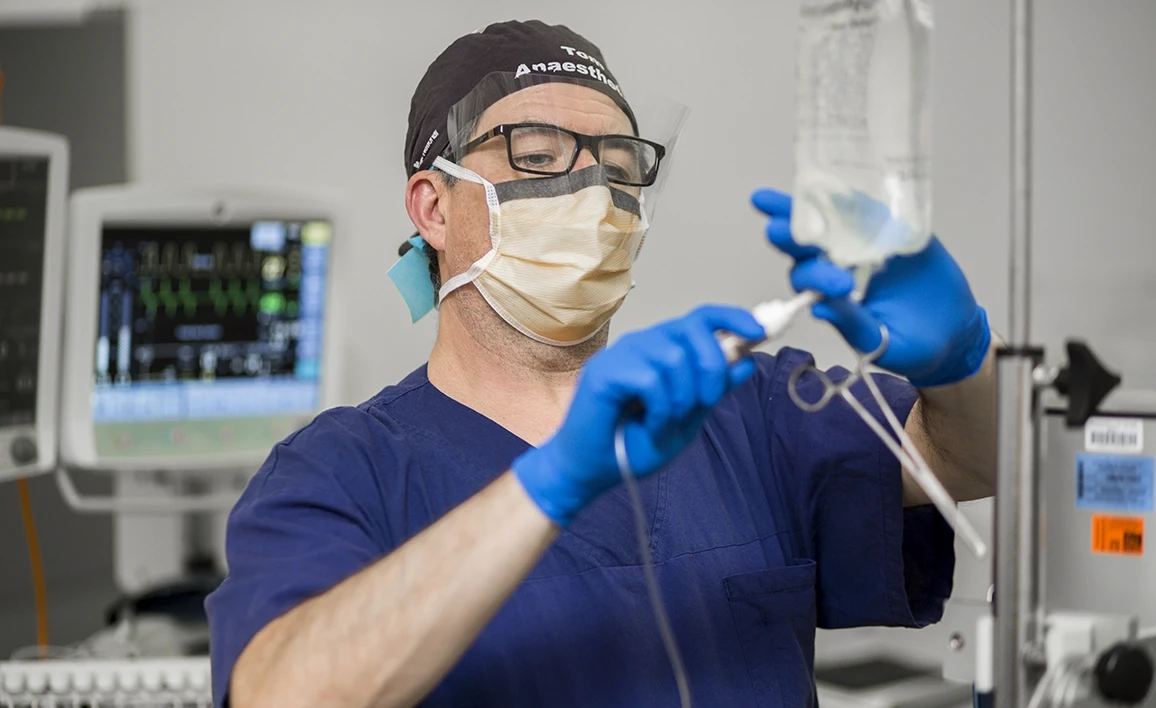Progress
The TRICS-IV trial continues to progress well overall with almost 1300 participants recruited from over 68 sites globally. The UK is now recruiting at a number of sites and so the study target has been increased by 300 to 1765. We are continuing to drive recruitment in Australia and continue our significant contribution to this internationally led trial. To date, we have randomised over 220 participants and have 12 active sites. With clarified inclusion criteria (definitions of pulmonary hypertension and unstable angina), the increased per participant payment, and an extension to the end date for the funding through the MRFF there is a possibility of meeting target recruitment of 300 by the start of 2026.
Trial manager
Bhavita Patel, TRICS IV Trial Coordinator, Department of Critical Care, University of Melbourne
Summary
Study summary
An international, multi-centre, randomised controlled trial to assess transfusion thresholds in younger patients undergoing cardiac surgery.
Study design
Multi-centre open-label randomised controlled trial (RCT) of a restrictive versus liberal transfusion strategy in higher risk patients ≤65 years of age having cardiac surgery on cardiopulmonary bypass, using a superiority trial design.
Hypothesis
A higher haemoglobin (Hb) concentration for red blood cell (RBC) transfusion (liberal transfusion strategy) will be superior to a restrictive strategy in terms of vital organ function (heart, brain and kidney) and mortality 6 months after cardiac surgery.
Sample size
1440 patients.
Study duration
Three years.
Background
The Transfusion Requirements in Cardiac Surgery trial (TRICS III) was published in 2017 and along with a subsequent meta-analysis, established non-inferiority of a restrictive red blood cell transfusion strategy in high-risk cardiac surgery patients (trigger Hb < 75 g/L) versus a liberal strategy (Hb < 95 g/L intraoperatively and ICU, and < 85 g/L on a non-ICU ward). The primary outcome was a composite outcome including death, myocardial infarction, stroke, or new renal failure. An unexpected finding in the planned subgroup analysis was that the liberal strategy appeared to be superior to the restrictive strategy in patients ≤75 years of age [odds ratio 1.32 (95% confidence interval (1.07−1.64) P=0.001)]. The interaction was robust in a series of sensitivity analyses according to decades of age (P = 0.004), with age as a continuous variable with restricted cubic splines (P = 0.006), and after adjustment for all the variables used to define subgroups (P = 0.002), with an inflection point at which the differences became manifest was found at around age 65 years.
Funding
MRFF ICTC Grant $869,565 (2021-2024)
Researchers
Prof David Scott
Prof Alistair Royse
Dr Raymond Hu
Prof John Fraser
Prof Cyril David Mazer
Dr Nadine Shehata
Prof Paul Bannon
Prof James Isbister
Collaborators
St Vincent's Hospital, Melbourne
St. Michael’s Hospital (Toronto, ON, Canada)
Australian and New Zealand College of Anaesthetists Clinical Trials Network (ANZCA CTN)
Trial registration
ClinicalTrials.gov Identifier: NCT04754022
Hepcidin and Iron Storage Sub-Study ACTRN identifier: 12621000952842p
Participating hospitals
| Australian hospitals |
| Gold Coast University Hospital |
| Flinders Medical Centre |
| Royal Melbourne Hospital |
| St Vincent's Hospital Melbourne |
| Austin Health |
| Alfred Health |
| Royal Prince Alfred Hospital |
| Westmead Hospital |
| Royal Adelaide Hospital |
| Victorian Heart Hospital |
| Prince of Wales Hospital |
| Barwon Health |
How to get involved
For further information about this study, please contact the TRICS-IV Project Manager, Bhavita Patel by email.

